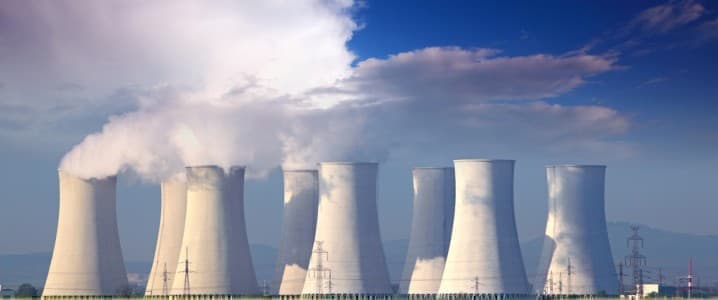As several governments aim to battle climate change by shifting away from fossil fuels and pursuing a green transition, many are revisiting a long-overlooked energy source – nuclear power. Nuclear power was at the top of many countries’ energy agenda for several decades before a few notable nuclear disasters shifted the public perception of the clean energy source, and several governments halted development for years. Now, as studies show that nuclear power is one of the safest forms of energy, so long as strict oversight mechanisms are in place, we are seeing a revival in the clean energy source. However, one of the major constraints to development is the high cost of project development.
Nuclear power plants are relatively cheap to run, but the cost of developing a new plant and reactor is extremely high, costing several billion dollars to set up. Many governments are funding the development of nuclear energy facilities through public-private partnerships to alleviate the financial burden on the state. In addition, private investors are often more willing to fund nuclear projects that have the political and financial backing of the government as a reassurance.
Over the last year, several tech companies have signed agreements with nuclear companies to gain access to a vast amount of nuclear power once projects come online, as they aim to find a cleaner way to power advanced technologies, such as data centres and artificial intelligence (AI). The widescale deployment of these technologies is expected to drive up the world’s energy demand significantly over the coming decades, and governments are increasingly shifting the burden to tech companies to find clean energy sources to power their operations instead of relying on the existing grid.
In September, representatives from some of the world’s biggest uranium and nuclear energy firms, as well as nuclear experts and investors, met for the annual World Nuclear Association (WNA) symposium to discuss the potential for nuclear investments, with investments in the nuclear value chain expected to increase to $2.2 trillion by 2050 from $1.5 trillion in 2024, according to Morgan Stanley.
Many investors are hesitant to invest in nuclear power due to the uncertainties involved in project development. The construction of new nuclear plants and reactors is extremely complex, and projects can often run over budget and take years longer than anticipated to develop, as seen with EDF’s Sizewell C nuclear power plant in the U.K. The cost of developing Sizewell C has almost doubled to $51.9 billion since it was first proposed, which will result in higher bills for consumers. This is largely due to the lack of nuclear power construction in recent decades, which has driven up the costs of new project development, compared to countries such as China, where projects are generally delivered on time and within budget.
